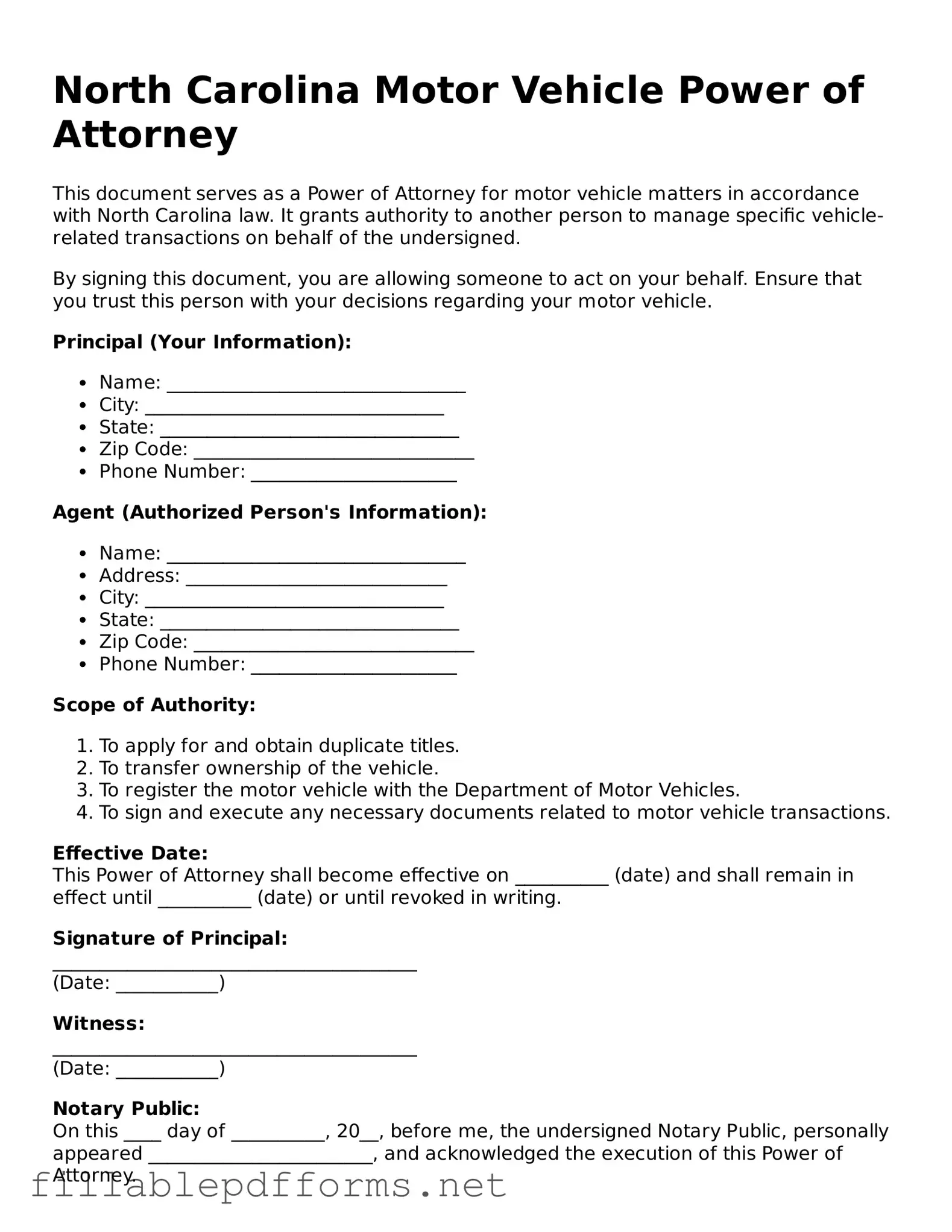Attorney-Verified Motor Vehicle Power of Attorney Form for North Carolina State
The North Carolina Motor Vehicle Power of Attorney form is a legal document that allows one person to authorize another to act on their behalf regarding motor vehicle transactions. This form is particularly useful when the vehicle owner cannot be present to complete necessary paperwork, such as title transfers or registrations. By using this form, individuals can ensure that their interests are represented even when they are unavailable.
Launch Editor Here

Attorney-Verified Motor Vehicle Power of Attorney Form for North Carolina State
Launch Editor Here

Launch Editor Here
or
▼ Motor Vehicle Power of Attorney PDF
Almost there — finish the form
Complete Motor Vehicle Power of Attorney online fast — no printing, no scanning.